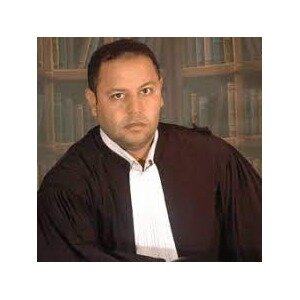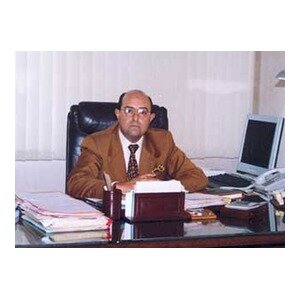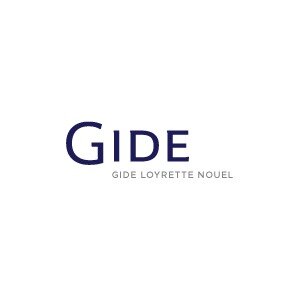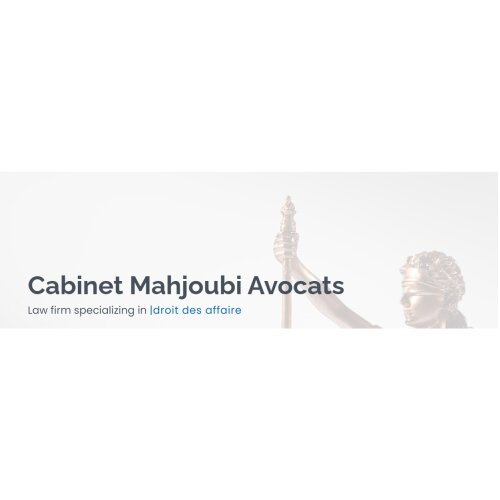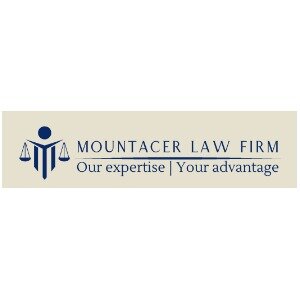Best Renewable & Alternative Energy Lawyers in Morocco
Share your needs with us, get contacted by law firms.
Free. Takes 2 min.
Or refine your search by selecting a city:
List of the best lawyers in Morocco
About Renewable & Alternative Energy Law in Morocco
Morocco is recognized as a regional leader in the development of renewable and alternative energy. The Moroccan government has prioritized the expansion of energy sources like solar, wind, and hydroelectric power to reduce dependence on imported fuels and lower greenhouse gas emissions. This shift has led to the establishment of frameworks governing the production, sale, and regulation of renewable energy resources. Investors, developers, and citizens all have a stake in understanding how these laws affect their rights and responsibilities in the evolving energy landscape.
Why You May Need a Lawyer
Legal support can be crucial when navigating renewable and alternative energy projects in Morocco. Common situations where legal guidance is valuable include securing permits for energy installations, negotiating power purchase agreements, understanding environmental compliance requirements, resolving disputes with suppliers or partners, acquiring land for energy projects, and interpreting new laws or tax incentives. Lawyers specializing in this field can also help with international partnerships, intellectual property protection for new technologies, and ensuring contracts are compliant with Moroccan regulations.
Local Laws Overview
Morocco’s legal framework for renewable energy has developed rapidly over the past decade. The key laws include:
- Law 13-09 promoting renewable energies, allowing private companies to generate and sell energy from renewable sources
- Law 58-15 amending the above, further liberalizing the market
- The creation of the Moroccan Agency for Sustainable Energy (MASEN), which oversees major projects and investments
- Environmental assessment regulations that ensure projects meet sustainability criteria
- Incentives and tax reductions designed to attract foreign and domestic investment in renewable sectors
Regulations may vary depending on the type and scale of the project, whether it is grid-connected or off-grid, and the region in which it is located. Understanding both national legislation and local administrative requirements is essential for success.
Frequently Asked Questions
What types of renewable energy projects are most common in Morocco?
Solar and wind energy are the most widespread, followed by hydroelectric and to a lesser extent, biomass projects.
Can private companies produce and sell renewable energy directly?
Yes, Moroccan law permits private companies to generate, transport, and sell renewable energy within certain frameworks and subject to regulatory approval.
Do I need a permit for a renewable energy installation on my property?
Permits are required for most installations, especially if the energy will be sold or connected to the national grid. Requirements vary based on project size and location.
How is the land for large-scale renewable projects acquired?
Land can be acquired through private purchase, lease, or concession from the government, but legal checks and environmental impact assessments are often mandatory.
What incentives exist for investing in renewable energy?
The Moroccan government offers various incentives including tax reductions, customs exemptions, and streamlined approval processes for qualifying projects.
Are there specific environmental regulations for these projects?
Yes, all significant renewable energy projects must adhere to environmental assessment regulations and mitigation measures to minimize ecological impact.
How do power purchase agreements (PPAs) work in Morocco?
PPAs are contractual agreements where a buyer agrees to purchase electricity generated by a renewable energy project. These contracts are subject to local laws and regulatory approvals.
What role does MASEN play in the renewable energy sector?
MASEN is responsible for the development and management of large-scale renewable energy projects, as well as implementing strategy and attracting investment.
Can individuals or small businesses sell excess renewable energy back to the grid?
While frameworks exist for feed-in tariffs and selling excess energy, the process and eligibility depend on regional regulations and the capacity of the installation.
What are the legal risks associated with renewable energy projects?
Legal risks may include non-compliance with local laws, land disputes, contract defaults, intellectual property issues, and environmental liabilities. Legal advice can help mitigate these risks.
Additional Resources
Some key resources and organizations in Morocco related to renewable and alternative energy include:
- Moroccan Agency for Sustainable Energy (MASEN)
- Ministry of Energy Transition and Sustainable Development
- National Electricity and Drinking Water Office (ONEE)
- Regional Investment Centers in major Moroccan cities
- Moroccan Investment and Export Development Agency (AMDIE)
These institutions can provide guidelines, investment support, regulatory information, and contacts for further legal assistance.
Next Steps
If you need legal advice or support regarding renewable and alternative energy in Morocco, start by identifying your specific needs, such as project development, compliance, or contract negotiation. Gather all relevant project documents, permits, and questions before meeting with a lawyer. Consider consulting legal professionals or firms with experience in energy law and familiarity with both national and local regulations. Engaging with specialized legal counsel early can help avoid costly mistakes and ensure your project’s success. Finally, keep informed about regulatory changes and take advantage of networking opportunities through industry events and professional associations.
Lawzana helps you find the best lawyers and law firms in Morocco through a curated and pre-screened list of qualified legal professionals. Our platform offers rankings and detailed profiles of attorneys and law firms, allowing you to compare based on practice areas, including Renewable & Alternative Energy, experience, and client feedback.
Each profile includes a description of the firm's areas of practice, client reviews, team members and partners, year of establishment, spoken languages, office locations, contact information, social media presence, and any published articles or resources. Most firms on our platform speak English and are experienced in both local and international legal matters.
Get a quote from top-rated law firms in Morocco — quickly, securely, and without unnecessary hassle.
Disclaimer:
The information provided on this page is for general informational purposes only and does not constitute legal advice. While we strive to ensure the accuracy and relevance of the content, legal information may change over time, and interpretations of the law can vary. You should always consult with a qualified legal professional for advice specific to your situation.
We disclaim all liability for actions taken or not taken based on the content of this page. If you believe any information is incorrect or outdated, please contact us, and we will review and update it where appropriate.
Browse renewable & alternative energy law firms by city in Morocco
Refine your search by selecting a city.






